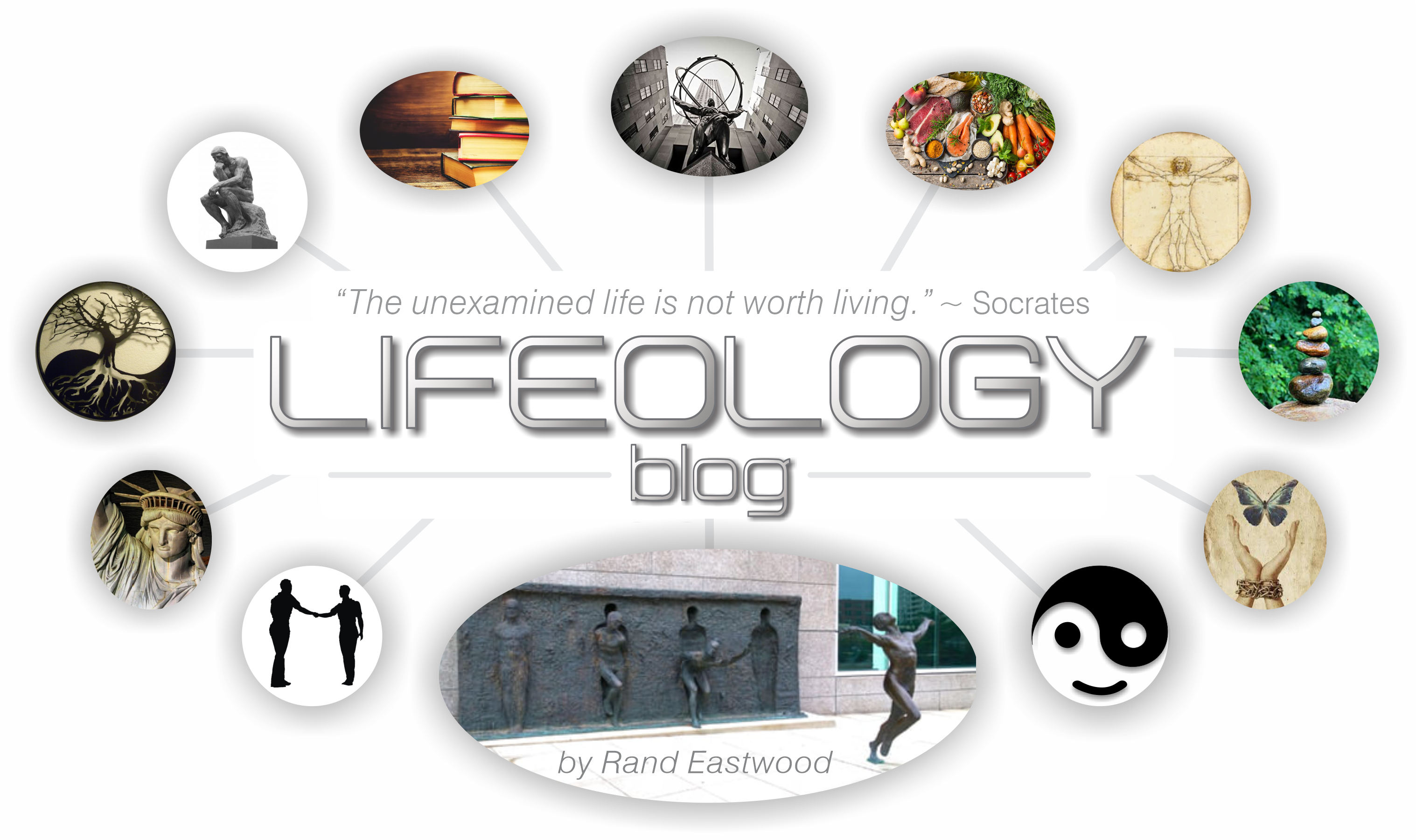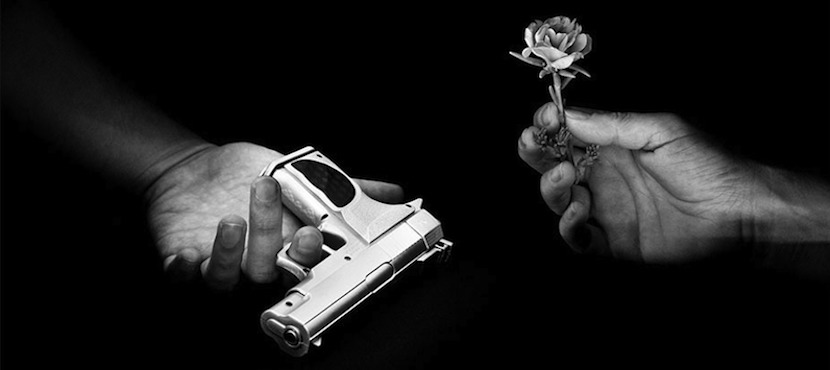The following essay by Leo Tolstoy was originally included in the publication The Law of Love and the Law of Violence (Chapter 8), and is in the public domain. You can also download a PDF version here.
The true Christian doctrine consists only in the recognition of love as the supreme law of life, and consequently not allowing any exception. This means that the pretended Christian doctrine that does allow exceptions, such as the possibility of the use of violence in the enforcement of laws, is a contradiction as obvious as cold fire or warm ice.
It seems natural that if the possibility is once admitted that men may torture or kill their fellow beings in the name of humanity, others may claim the same right to torture and kill in the name of some ideal of the future. The admission of a single case contrary to the law of love destroys all its beneficial characteristics, although it is the basis of all religious or moral doctrines. This seems so self-evident that one hesitates to be obliged to prove it. Nevertheless, the believers or the nonbelievers of the Christian world (the latter acknowledge the moral law) look upon the doctrine of love condemning violence as fantastic and inapplicable to life.
This ought not to be the case for the mass of workers who employ violence on each other and who suffer from it so cruelly. The situation of the oppressed should not be compared to the constraint used directly by the stronger on the weaker, or by a greater number on a smaller number. Here, indeed, it is the minority that oppresses the majority, thanks to a lie established ages ago by clever people, in virtue of which men despoil each other, for insignificant profits, of much greater advantages—such as liberty—and are exposed to painful suffering.
The origin of this lie was uncovered four centuries ago by the French writer La Boétie, in his work, The Politics of Obedience: The Discourse of Voluntary Servitude. He said:
“It is not bands of horsemen, or companies of infantry, or weapons that defend the tyrant. Instead, it will not at first be believed, even as true as it is, there are always four or five who control the tyrant, four or five who hold the country in servitude for him. There are always five or six who have access to the tyrant, and who have offered themselves, or are called upon by him, to be accomplices of his cruelty, companions of his pleasures, panderers to his lust, and sharers in his pillage. These six train their chief so well that he must be wicked, not only as the result of his own brutality, but of theirs also. These six have six hundred who profit under them, and they act towards them as the six act towards the tyrant. These six hundred have under them six thousand whom they have raised in degree, and to whom they have given, even if indirectly, the government of provinces or the handling of taxes, so that they may control their avarice and cruelty. They perform their duties when it seems good to them, and also do so much evil that they could not exist except under protection, or be dispensed with except by means of law and punishment.
Great are the consequences that result from this. And anyone who looked closer into this net would be interested in seeing that not only the six thousand, but hundreds of thousands, even millions, hold the tyrant by this cord, helping themselves by means of it. In the same way, in Homer, Jupiter boasts that if he pulls a chain, he will draw all the gods to him. From this came the rise of the senate, the establishment of new states, and the election of offices—certainly not to reform justice, but to keep the tyrant in power.
To sum up, we owe our present condition to the favors, the gains, and the advantages that one acquires together with the tyrants, who find as many people to whom tyranny seems profitable, as those to whom liberty would be agreeable. If physicians say there is something the matter with one part of our body, although the rest is quite well, they come at once to the infected part. In the same way, as soon as a king is declared a tyrant, all the wicked and dregs of the kingdom (I do not say a lot of robbers and cheats who can do neither evil nor good in a republic, but those who are filled with ardent ambition and extraordinary avarice) gather around him and uphold him in order to share in the booty and to be petty tyrants under the great tyrant.
Thus act the great thieves and the famous corsairs: some discover countries, others rob travelers; some are in ambush, others lie in wait; some assassinate, others despoil; and even here there are degrees, and while some are only servants, others are the chiefs of the group, although one and all share in the booty or at least are in the search for it. They say that the Sicilian pirates assembled in such great numbers that Pompey the Great had to be sent against them. But they allied themselves with several splendid cities and towns, in whose harbors they could hide with great security when they returned from their raids, and for recompense they allowed these towns a certain percentage of their pillage.
Thus the tyrant enslaved his subjects, some by the help of others, and was protected by those from whom, if they were worth nothing, he should himself have been protected. But, as they say, to cut wood one must have wedges of the same kind of wood. There are the archers, there is the guard, and there are the halberdiers. Not that they do not suffer occasionally on his account, but these lost sheep, these people abandoned by God and man, are content to endure evil in order to commit it in their turn, not on those who inflict it on them, but on those who suffer from it like themselves and who are unable to commit it.”
It would seem that the workers, not gaining any advantage from the restraint that is exercised on them, should at last realize the lie in which they are living and free themselves in the simplest and easiest way: by abstaining from taking part in the violence that is only possible with their co-operation. It would be so simple and so natural to make the agricultural laborers, who are in the majority in Russia and other countries, understand that for centuries they have been suffering by their own fault and without any advantage; that the exclusive possession of the land is assured by those who do not work it themselves—guards, police agents, and soldiers; and that all the taxes are imposed by them, inasmuch as they are employed by the exchequer.
When they have at last understood, it would be natural to get them to say to those they consider as chiefs, “Leave us alone. If you emperors, generals, judges, bishops, professors and other learned men have need of armies, navies, universities, corps de ballet, ecclesiastic courts, conservatories of music, prisons, gallows, or guillotines, prepare them all yourselves. Tax yourselves, judge yourselves, imprison and execute each other, exterminate yourselves, and get yourselves killed in war. Leave us alone, for we have no need of all these things and we do not wish to participate in acts that are futile as far as we are concerned, and above all, so wicked.”
Nothing should be more natural than that the working class should thus express itself. But most of them continue their existence as martyrs in the police service, in financial offices, and in the regiments. Others, the minority, try to free themselves from oppression by revolt and by committing violence in their turn on those who oppress them, or, in other words, try to quench fire with fire and thus increase the violence from which they are suffering.
Why do men act so irrationally? It is because the long duration of the lie has caused them to lose all notion of the bond that exists between their servitude and their participation in violence.
Why do they not see this bond? Because they no longer have faith, and without faith, men are guided only by interest. In fact, he who is guided by interest alone cannot do otherwise than deceive or be deceived.
The result is a surprising phenomenon: the masses of the working class, the great majority, not only continue to support violence, but even maintain it, contrary to common sense and contrary to their evident interest. They do this in spite of very frequent denunciations of the iniquity from which they are suffering, and in spite of revolutions for the purpose of suppressing violence by violence.
All these workers continue, by habit, either to profess the false Christian doctrine taught by the Church, or to deny all religion. They believe in the bottoms of their hearts in the ancient law of “a tooth for a tooth” and in submitting to the detested government, or else seek to destroy it by violence. Part of them are powerless to change their situation because, believing in the necessity of the present social organization, they cannot refrain from participating in its violence. The rest, whose religion has been replaced by political doctrines, cannot free themselves from violence because they are forced to suppress it by violence of another sort.
Appendix to Chapter 8
When one speaks of the principal law of the Christian doctrine, nonresistance to evil by violence, men of the privileged classes, believers or unbelievers, to smile ironically, as if it were an absurdity so evident that one cannot even speak seriously about it.
Most of these people consider themselves to be moral and educated. They seriously discuss the questions of the Trinity, the Divinity of Christ, and the Redemption of the Sacraments. Or else, they converse with you just as seriously as to which of the two principal political parties has the greatest chance of success, which grouping of the state is to be most desired, and what the most likely vision of the future state will be–that of the social democrats, or of the social revolutionists. But all are equally convinced that one cannot speak seriously of nonresistance to evil.
Why? Simply because it is impossible for men not to feel that the admission of nonresistance to evil ruins their lives as they now are, and exacts of them something new and unknown, which terrifies them.
That is why the questions about the Trinity, the Immaculate Conception, and Communion are capable of occupying serious people, and unbelievers can find amusement by discussing questions of syndicates, parties, socialism, and communism, while nonresistance to evil seems an insane idea. And the more senseless it seems to them, the higher their position.
In the same way, the force of the denial of the doctrine of nonresistance is in proportion to the degree of the power, wealth, and civilization of men. Those who occupy powerful positions—the very rich, and those who, like the learned, justify the position of these people—simply shrug their shoulders at every allusion to the law of nonresistance. Men less important, less rich, or less clever despise it equally. But all those whose lives are founded on violence judge with more or less disgust the possibility of the application of the law of nonresistance.
So it is certain that, if the admission of the Christian doctrine in its real sense depended upon people who enjoy privileged positions, the passing of the state founded on violence to the one having love for its principle would be nearer than it is today, above all in Russia, where more than two thirds of the population are not yet depraved by wealth, power, or by civilization.
As the majority of the Russian people have no motive and no advantage in depriving themselves of lives where love reigns, it must surely be they who will take initiative in replacing the present state by a new one that one’s conscience, already clear on the subject, indicates.
Again, you can download a PDF version here.
Like/Follow Lifeology Blog on Facebook • View Rand’s Books on Amazon
Visit Lifeology Store • Like/Follow Lifeology Store on Facebook
A Note To Readers:
If you found this article (or any of the others, for that matter) interesting, informative, entertaining, etc., please consider subscribing to the Lifeology email newsletter: simply enter your email into the form below (also in the right sidebar)—or, if you prefer, just use this simple quick sign-up form.
↓↓↓ Also, please hit the “Like” (thumbs up) button below. Thanks! ~ Rand

















